Reflecting on 20 years of Canada’s newest territory, Nunavut.

Late one night almost 40 years ago on my way to Whale Cove from Rankin Inlet, Nunavut, my snowmobile broke down just past a point of land we call Pangniqtut, about halfway up the west coast of Hudson Bay. I walked back a few kilometres to where I had seen a tent. The occupants, a family of four, were all asleep. I laid out my sleeping bag on the floor and went to sleep. Early the next morning, I awoke to the smell of coffee. Nattat, a man I had known since my childhood, offered me a cup. There was no alarm, no sense of intrusion, just welcome.
Inuit have been on this land for thousands of years, so for the 20th anniversary of Nunavut becoming a territory, this is a reflection on the people, the land and the Nunavut Agreement.
THE PEOPLE
Inuit have always lived in Siberia, Alaska, Northern Canada (including northern Quebec and Labrador) and Greenland. We speak a common language, Inuktut, with many different dialects. We share a common culture. Exactly when Inuit came to North America is a mystery. Some estimate we migrated, following animals, across a land bridge between Siberia and Alaska around 4,000 years ago. Others say there is archeological evidence we have been on this continent for close to 20,000 years. Even in this day and age, Inuit are little understood by people around the world. We are famous for two things that we have invented: the igloo and the kayak.
هذه القصة مأخوذة من طبعة March/April 2019 من Canadian Geographic.
ابدأ النسخة التجريبية المجانية من Magzter GOLD لمدة 7 أيام للوصول إلى آلاف القصص المتميزة المنسقة وأكثر من 9,000 مجلة وصحيفة.
بالفعل مشترك ? تسجيل الدخول
هذه القصة مأخوذة من طبعة March/April 2019 من Canadian Geographic.
ابدأ النسخة التجريبية المجانية من Magzter GOLD لمدة 7 أيام للوصول إلى آلاف القصص المتميزة المنسقة وأكثر من 9,000 مجلة وصحيفة.
بالفعل مشترك? تسجيل الدخول
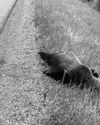
ANIMAL XING
THIS PAST SUMMER AN AMBITIOUS WILDLIFE UNDER/OVERPASS SYSTEM BROKE GROUND IN B.C. ON A DEADLY STRETCH OF HIGHWAY JUST WEST OF THE ALBERTA BORDER. HERE’S HOW IT HAPPENED.
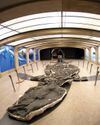
Unearthing a giant
Almost 30 years ago, paleontologist Elizabeth “Betsy” Nicholls made a discovery of colossal proportions
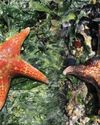
WE DID THIS
AS THE IMPACTS OF GLOBAL WARMING BECOME INCREASINGLY EVIDENT, THE CONNECTIONS TO BIODIVERSITY LOSS ARE HARD TO IGNORE. CAN THIS FALL’S TWO KEY INTERNATIONAL CONFERENCES POINT US TO A NATURE-POSITIVE FUTURE?
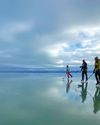
The COOLEST COUNTRY
“The coolest country” celebrates the wonders of winter with an all-Canadian theme. The 20-page travel planner includes a bucket list from travel writer Robin Esrock, steamy spa ideas, ice fishing destinations, festival fun, northern itineraries and more!
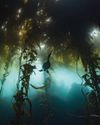
KEEPER of the SEA
FROM BEING LABELLED DEVIL’S APRON BY FRUSTRATED FISHERMEN TO BEING LAUDED AS A SUSTAINABLE FOOD SOLUTION: HOW KELP’S POTENTIAL IS BEING REALIZED, JUST AS SCIENTISTS LEARN IT’S DECLINING
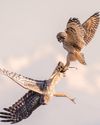
WILD THINGS
WILD CANADIAN GEOGRAPHIC PRESENTS THE WINNERS OF ITS ANNUAL CANADIAN WILDLIFE PHOTOGRAPHY OF THE YEAR COMPETITION
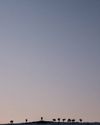
AN EMPTY LANDSCAPE
AFTER MORE THAN A MILLION YEARS ON EARTH, CARIBOU ARE UNDER THREAT OF GLOBAL EXTINCTION. THE PRECIPITOUS DECLINE OF THE ONCE MIGHTY HERDS IS A TRAGEDY THAT IS HARD TO WATCH — AND EVEN HARDER TO REVERSE.
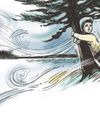
NORTHERN EXPOSURE
BON INTO A CARIBOU-HUNTING CREE FAMILY IN NORTHERN MANITOBA, ACCLAIMED PLAYWRIGHT AND NOVELIST. TOMSON HIGHWAYS PAYS TRIBUTE TO THE MAGICAL WORLD OF HIS CHILDHOOD IN PERMANENT ASTONISHMENT
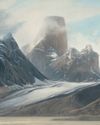
INTO THE ARCTIC
CANADIAN PAINTER AND FILMMAKER CORY TRÉPANIER EXPLORES THE SUBLIME AND RAPIDLY CHANGING CANADIAN ARCTIC
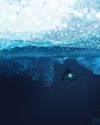
Under the ice
Until the last decade, we knew little about what lay beneath the Arctic ice. Now scientists and explorers are shedding light on this vanishing world.